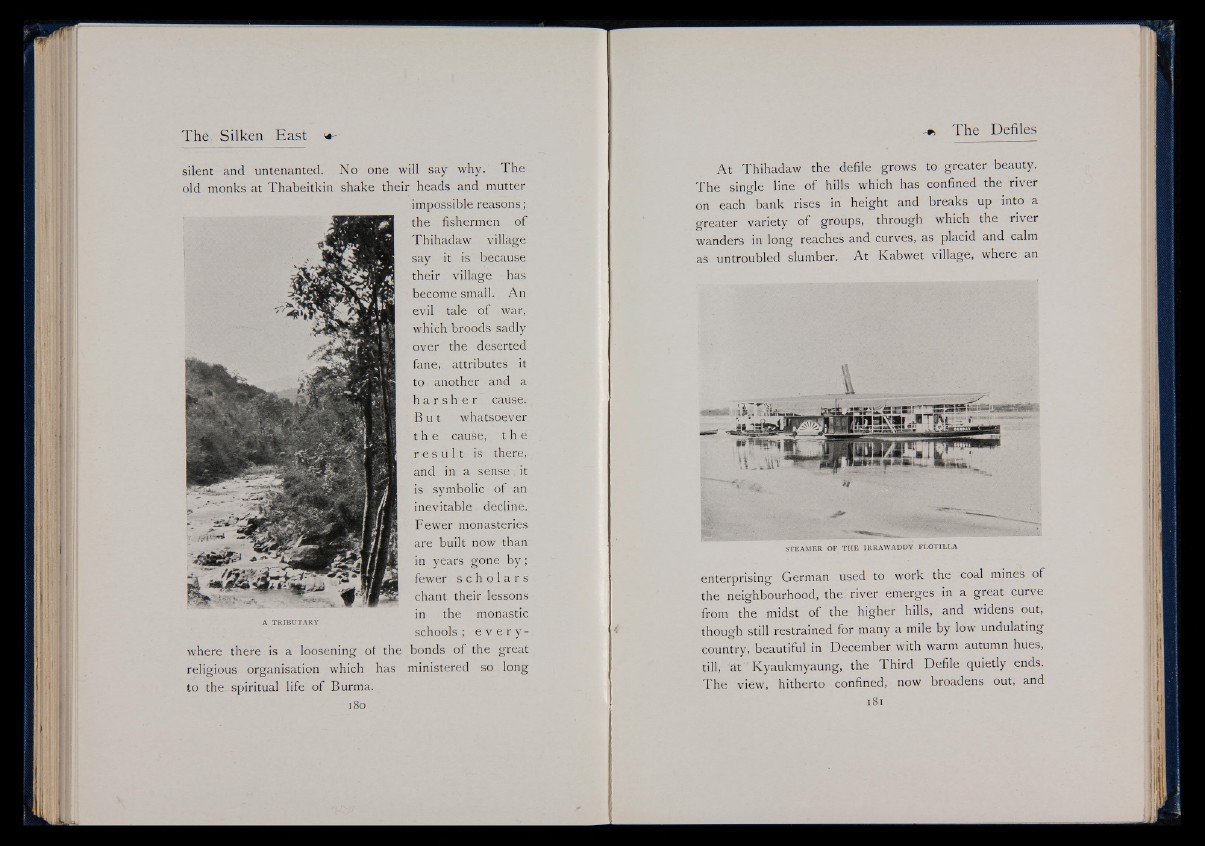
silent and untenanted. No one will say why. The
old monks at Thabeitkin shake their heads and mutter
impossible reasons;
the fishermen of
Thihadaw village
say it is because
their village has
become small. An
evil tale of war,
which broods sadly
over the deserted
fane, attributes it
to another and a
h a r s h e r caúse.
B u t whatsoever,
th e cause, t h e.
r e s u l t is there,
and in a sense , it
is symbolic of an
inevitable decline..
Fewer monasteries
are built now than
in years gone b y ;
fewer s c h o l a r s
chant their lessons
in the monastic
A T R IBU T A R Y
schools ; e v e r y where
there is a loosening ot the bonds of the great
religious organisation which has ministered so long
to the spiritual life of Burma.
180
At Thihadaw the defile grows to greater beauty.
The single line of hills which O has confined the, river
on each bank rises in height and breaks up into a
greater variety of groups, through which the river
wanders in long reaches and curves, as placid and calm
as untroubled slumber. At Kabwet village, where an
STEAM ER OF TH E IR R AW AD D Y F LO T IL L A
enterprising German used to work the coal mines of
the neighbourhood, the river emerges in a great curve
from the midst of the higher hills, and widens out,
though still restrained for many a mile by low undulating
country, beautiful in December with warm autumn hues,
till, at Kyaukmyaung, the Third Defile quietly ends.
The view, hitherto confined, now broadens out, and
181